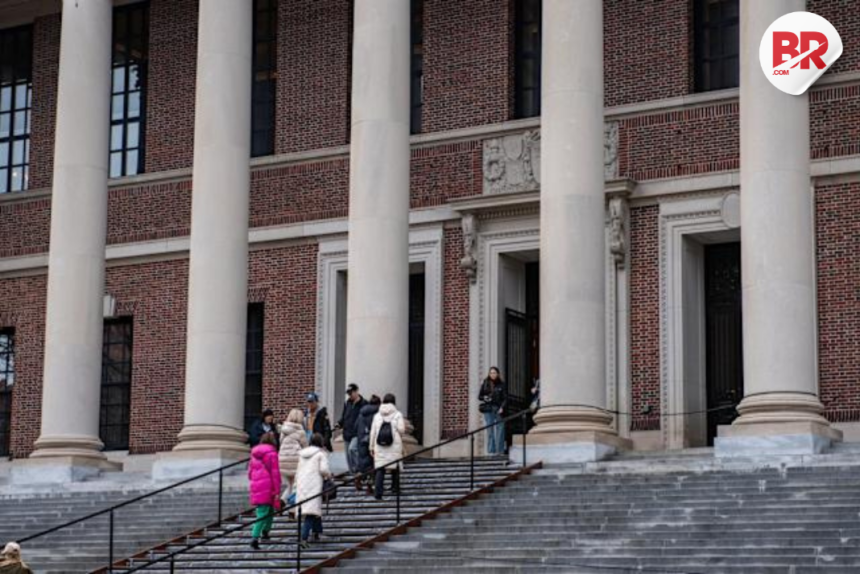
In the lingering shadow of the Trump-era freeze, Harvard University lost over $2.7 million in Department of Homeland Security (DHS) grants, a casualty of political decisions that targeted research institutions perceived as ideologically misaligned.
The freeze, ordered during Donald Trump’s presidency and carried out by then-DHS Secretary Kristi Noem, resulted in the cancellation of two major grants. These funds were reportedly set aside for vital projects in cybersecurity, counterterrorism, and border security—areas where research plays a direct role in shaping national safety.

What Does This Mean for the Average Person?
When major research institutions like Harvard lose funding, the impact is rarely isolated. These aren’t just academic losses—they’re delays in innovation that could keep your data safe, improve national security, or shape smarter border strategies.
In simple terms: a grant freeze doesn’t just hurt Harvard’s researchers—it hurts all of us when the science stops moving forward.
Behind the Freeze: Politics Over Progress
Harvard, long a lightning rod for conservative criticism, found itself squarely in the crosshairs of the Trump administration’s ideological battles. The grants were rescinded not for scientific failure, but due to “concerns” over Harvard’s approach to national security and immigration policy—a red flag for many in academia.
According to The Chronicle of Higher Education and other watchdogs, such moves signal a deeper problem: the creeping politicization of federal research funding. When science becomes a pawn, even top-tier institutions can be punished for their perceived politics.
And let’s be real: when research depends on political mood swings, it’s not innovation—it’s roulette.
The Real-World Impact of a $2.7M Loss
Sure, $2.7 million might be pocket change in Harvard’s billion-dollar budget, but the ripple effects are sharp:
- Delayed Projects: Research on cybersecurity and border technology may be years behind schedule.
- Lost Opportunities: Graduate students, postdocs, and faculty may have lost jobs or fellowships.
- Chilling Effect: Researchers may now think twice before tackling topics that challenge government narratives.
It’s a classic case of cutting off the brain to spite the body. Science doesn’t thrive in silence or fear.
A Global Perspective: What If This Happened in India?
For someone watching from abroad, say, in India, the message is sobering. International collaborations—like climate change modeling or infectious disease research—could crumble if similar freezes were imposed. If U.S. funding dries up due to political reasons, the whole world loses out on progress.
What if a joint AI ethics project between MIT and IIT Delhi was scrapped because someone in power didn’t like the results? That’s not just academic drama—it’s global stagnation.
Moving Forward: Science Needs Insulation, Not Interference
This incident is more than just a Harvard headline. It’s a cautionary tale of how vulnerable academic freedom can be when political ideologies drive funding decisions. Research must be judged on merit—not mood.
Safeguarding the future of innovation means keeping funding transparent, evidence-based, and independent of partisan agendas. After all, the viruses, hackers, and climate threats of tomorrow don’t care which party holds power today.
Also Read: Trump-Era Cuts Ignite U.S. Scientist Brain Drain to Europe’s Open Labs












